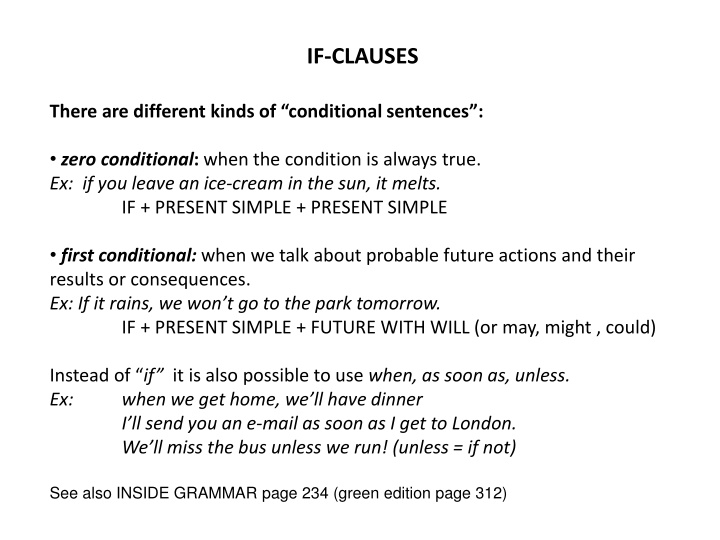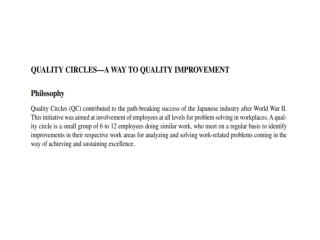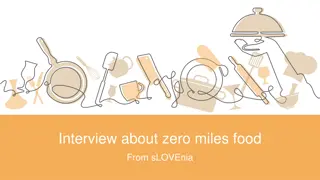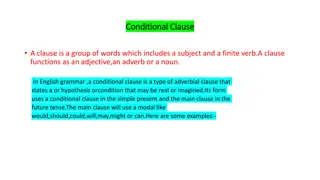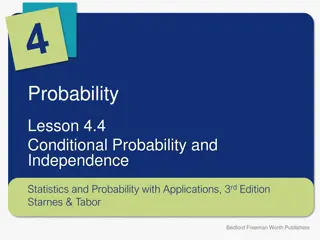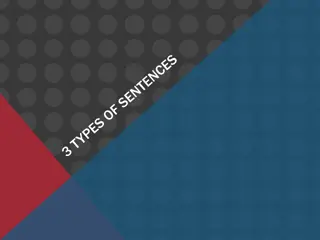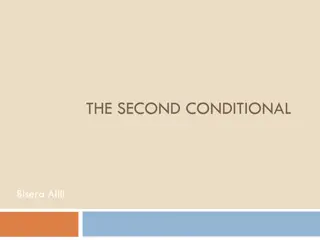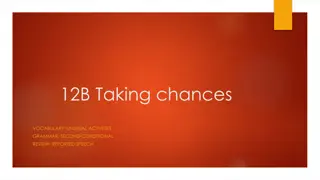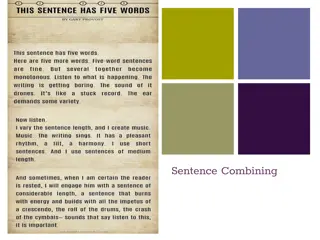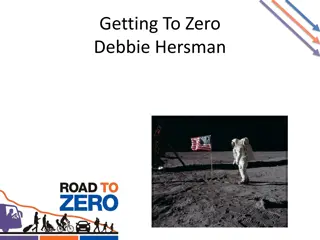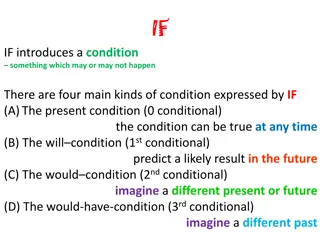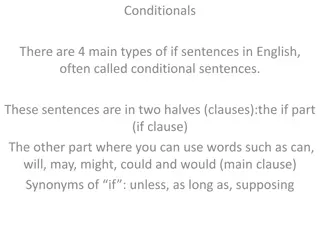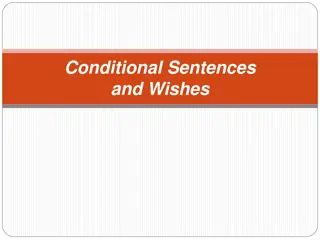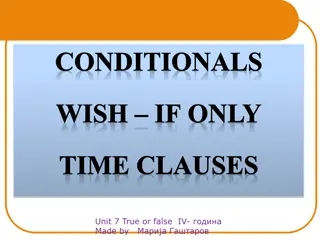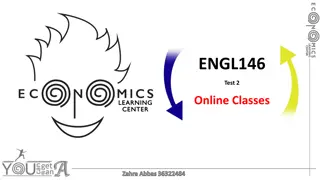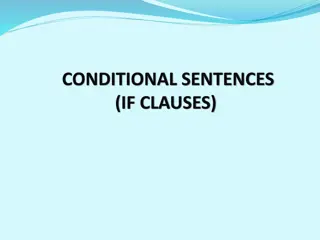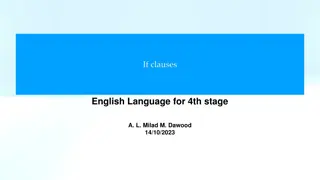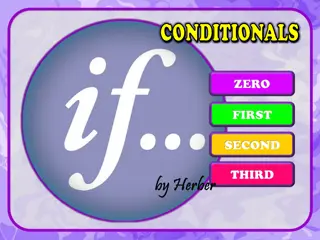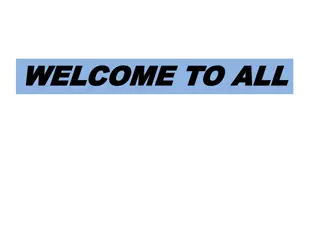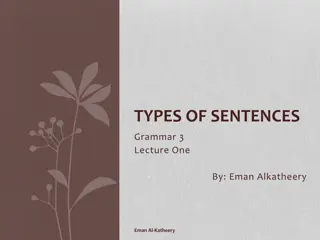Types of Conditional Sentences: Zero Conditional
Different types of conditional sentences exist in the English language, with one being the zero conditional. In this type, the condition is always true, leading to a specific outcome. For instance, if you leave an ice-cream in the sun, it melts. Understanding the nuances of each conditional sentence is essential for accurate communication and conveying scenarios effectively.
Download Presentation

Please find below an Image/Link to download the presentation.
The content on the website is provided AS IS for your information and personal use only. It may not be sold, licensed, or shared on other websites without obtaining consent from the author.If you encounter any issues during the download, it is possible that the publisher has removed the file from their server.
You are allowed to download the files provided on this website for personal or commercial use, subject to the condition that they are used lawfully. All files are the property of their respective owners.
The content on the website is provided AS IS for your information and personal use only. It may not be sold, licensed, or shared on other websites without obtaining consent from the author.
E N D
Presentation Transcript
IF-CLAUSES There are different kinds of conditional sentences : zero conditional: when the condition is always true. Ex: if you leave an ice-cream in the sun, it melts. IF + PRESENT SIMPLE + PRESENT SIMPLE first conditional: when we talk about probable future actions and their results or consequences. Ex: If it rains, we won t go to the park tomorrow. IF + PRESENT SIMPLE + FUTURE WITH WILL (or may, might , could) Instead of if it is also possible to use when, as soon as, unless. Ex: when we get home, we ll have dinner I ll send you an e-mail as soon as I get to London. We ll miss the bus unless we run! (unless = if not) See also INSIDE GRAMMAR page 234 (green edition page 312)
Second conditional: to talk about an imaginary or hypothetical situation in the present or future and its consequences. The situation is usually improbable or impossible. Ex: if I won the lottery, I would buy a new car. If I was/were older, I d go on holiday with my friends. IF + PAST SIMPLE + WOULD ( d)/ WOULDN T + BASE FORM o We use the expression if I were you to give advice. Ex: If I were you, I would study more. o Instead of would, it is possible to use could or might. Ex: If I had more money, I could buy you a drink. If you played the lottery, you might win. o We use I wish/ if only + Past Simple to express a wish or desire to change something about a present or future situation Ex: I wish/ if only I could sing very well. See also INSIDE GRAMMAR page 237 (green edition page 314)
Third conditional: to imagine a hypothetical situation in the past (that didn t happen) and its consequences. Ex: If we had left earlier, we wouldn t have been late. I would have told you, if I had known. IF + PAST PERFECT + WOULD/ WOULDN T HAVE + PAST PARTICIPLE oIt s also possible to use might or could to express possibility. Ex: If you had tried harder, you might/ could have succeeded. o We can use I wish/ if only + past perfect to express regret about the past. Ex: If only I had said yes . I wish we had stayed in London. See also INSIDE GRAMMAR page 240 (green edition page 322)
Exercises Complete the following conditional sentences with the correct verb tense: If I were you When we get home I would go to London if As soon as we get off the bus, I wouldn t have started that course if If it hadn t rained, we could . If it didn t rain, we I wish If only 10. She could have done better if 11. What would you do if ? 12. What will you do when ? 1. 2. 3. 4. 5. 6. 7. 8. 9.
